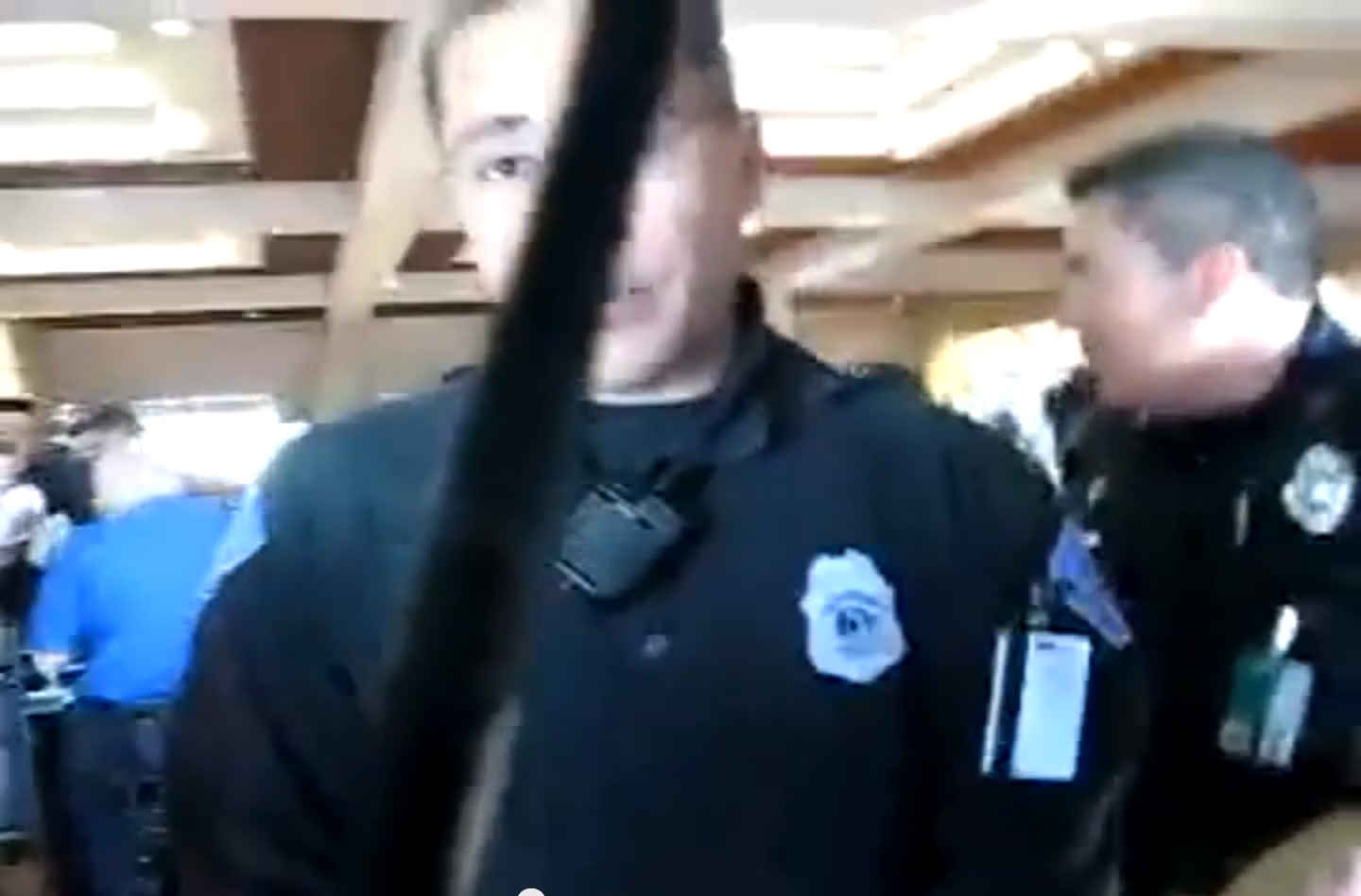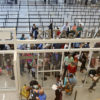D o you have the right to record police with video, audio or photographs while they are performing their duties — especially in a public place?
According to an article written by T.C. Sottek at The Verge, you not only absolutely have the right — but perhaps also the duty — to do so in the United States.
An unarmed black teenager named Michael Brown was reportedly shot and killed by a police officer on August 9, 2014 in Ferguson, which is a suburb of St. Louis. Since then, the town has been overcome by protests and civil unrest as a result of increased tension between police and the citizens of Ferguson.
Earlier this week, a line of police officers of St. Louis County supposedly demanded that a crowd of protesters turn off their cameras, according to Sottek. “Here’s the deal: as a resident of the US, you have the right to record the police in the course of their public duties. The police don’t have a right to stop you as long as you’re not interfering with their work. They also don’t have a right to confiscate your phone or camera, or delete its contents, just because you were recording them.
“Despite some state laws that make it illegal to record others without their consent, federal courts have held consistently that citizens have a First Amendment right to record the police as they perform their official duties in public.”
What does this have to do with travel, you might ask?
For years, there has been confusion as to whether or not photography is allowed at airport security checkpoints. The following policy is directly from the official Internet web site of the Transportation Security Administration:
“TSA does not prohibit the public, passengers or press from photographing, videotaping or filming at security checkpoints, as long as the screening process is not interfered with or slowed down. We do ask you to not film or take pictures of the monitors. While the TSA does not prohibit photographs at screening locations, local laws, state statutes, or local ordinances might.
“Taking photographs may also prompt airport police or a TSA official to ask what your purpose is. It is recommended that you use the Talk To TSA program on tsa.gov to contact the Customer Support Manager at the airport to determine its specific policy. Or, if you are a member of the press, you should contact the TSA Office of Public Affairs.”
There have been incidents in the past where confusion reigns as to whether the policy of the airport supersedes the policy of the Transportation Security Administration — or vice versa:
Andrea Abbott attempted to record the “pat-down” of her daughter at an airport security checkpoint on her mobile telephone back in 2011; but an officer of the Nashville International Airport Department of Public Safety appeared to purposely use his body to block her line of sight to her daughter.
FlyerTalk member marklyon alleged that he was assaulted by a Transportation Security Administration agent for filming the security checkpoints inside Terminal 4 at John F. Kennedy International Airport in New York three years ago where he attempted to determine which security checkpoints were using the Backscatter advanced imaging technology machines, and then he was ultimately forced to delete the footage — part of which he has successfully recovered and is available for viewing:
Would Phil Mocek have been found by a jury not guilty of all four charges levied against him in 2011 in what has been considered a landmark case pertaining to the rights of passengers when traveling — specifically, not showing his identification when asked at an airport security checkpoint in Albuquerque — had he not recorded a video of the incident?
Here is the video, if you cannot see it below:
Last year, United States District Judge James O. Browning dismissed Transportation Security Administration agents as defendants from a civil lawsuit filed by Mocek, as the Transportation Security Administration agents were entitled to dismissal because Mocek had reportedly not demonstrated to the satisfaction of the federal judge violations of the First Amendment when he was ordered by them to cease filming.
From the department of the absurd: what if you were threatened by a flight attendant to delete photographs you took of your feet aboard an airplane? What if a flight attendant ran up to a Transportation Security Administration, or TSA, agent at customs upon arrival and reported you for taking photography, implying that you did so in the terminal area even though you did no such thing?
As I believe in the rights afforded to American citizens as provided by the Constitution, it would be no surprise that I support the recording of law enforcement officers and agents of the Transportation Security Administration by any means necessary as they performed their duties — but I want to emphasize the word necessary, as I do not believe that the recordings should be done superfluously or in a manner purposely designed to intentionally annoy the person or people in question being recorded…
…but I also believe that the recorder should not be harassed by the law enforcement officers or agents of the Transportation Security Administration whom they may be recording, as it is within the rights of that person to do so.
It would be a rather dark day in the United States if the police in Ferguson had it their way and were allowed to prohibit the recording of them actively on duty by whatever means they deemed necessary — especially if by force — in my opinion; and it would be equally detrimental to travelers if a similar policy was allowed at airport security checkpoints in the United States.
Photograph courtesy of Phil Mocek.

